Talent Management Report: Definitions and Organizational View
VerifiedAdded on 2020/04/21
|6
|726
|80
Report
AI Summary
This report delves into the realm of talent management, commencing with definitions of 'talent' as a combination of innate abilities and acquired skills, and 'talent management' as a strategic approach to cultivate and utilize an organization's key personnel. It explores the perspectives of various management authors, highlighting the importance of a systematic and customized approach to talent management based on the specific needs of an organization. The report emphasizes the significance of strategic talent management, focusing on the pivotal talent within an organization and their contribution to profitability. Key definitions from Michel et al. (2001) and Lewis & Heckman (2006) are included, alongside references to foundational works in the field. The report underscores the dynamic nature of talent management in response to evolving business environments, advocating for adaptable strategies tailored to organizational goals. This report is available on Desklib.
1 out of 6

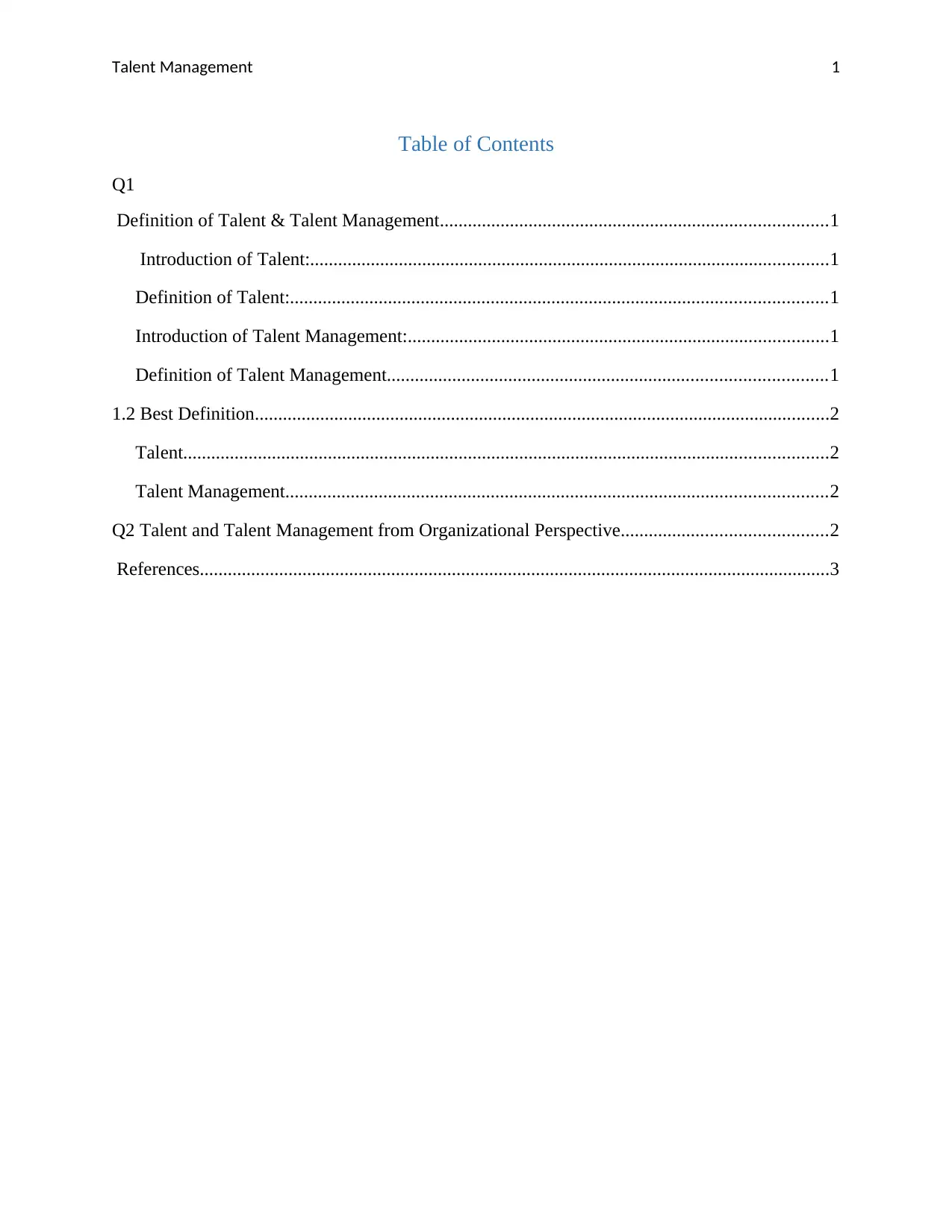
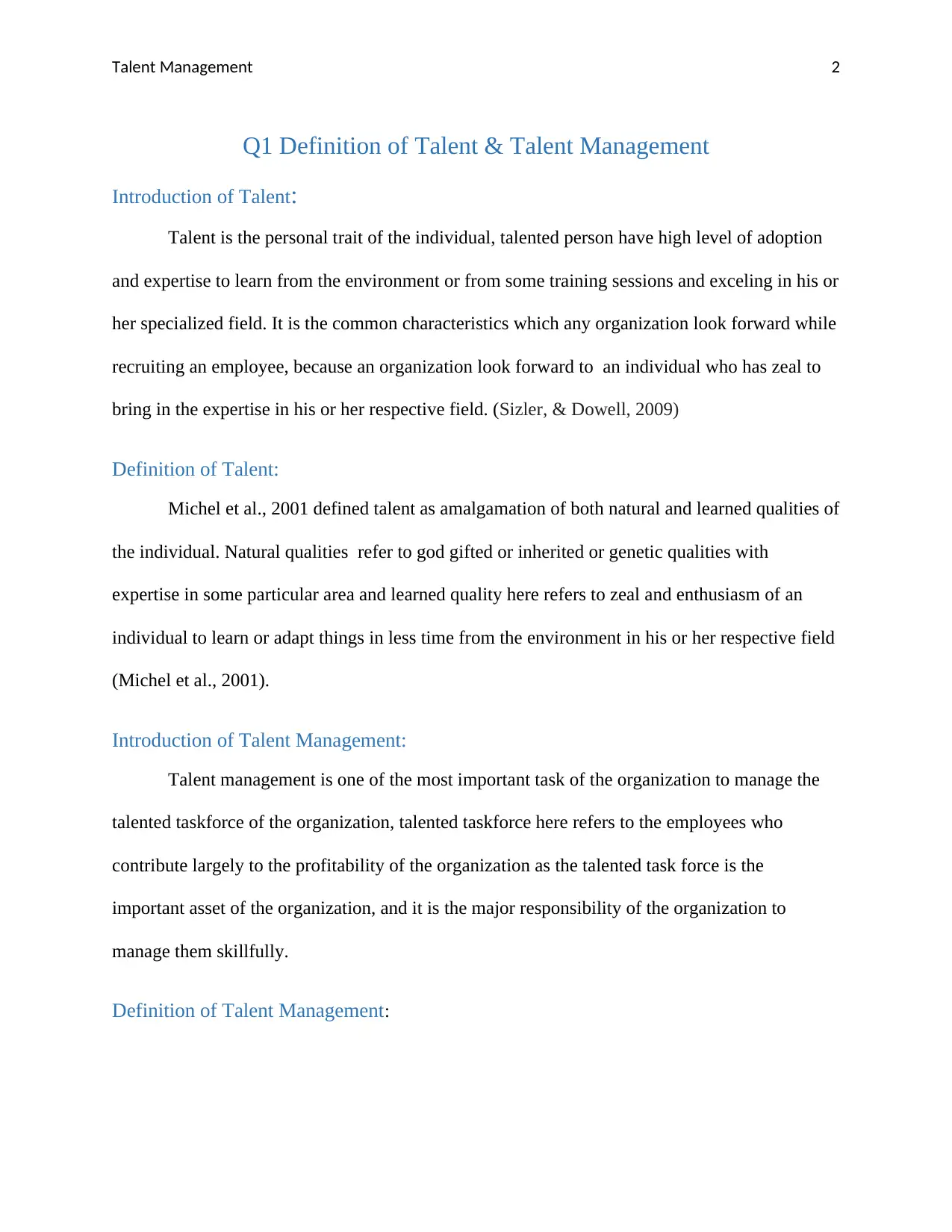

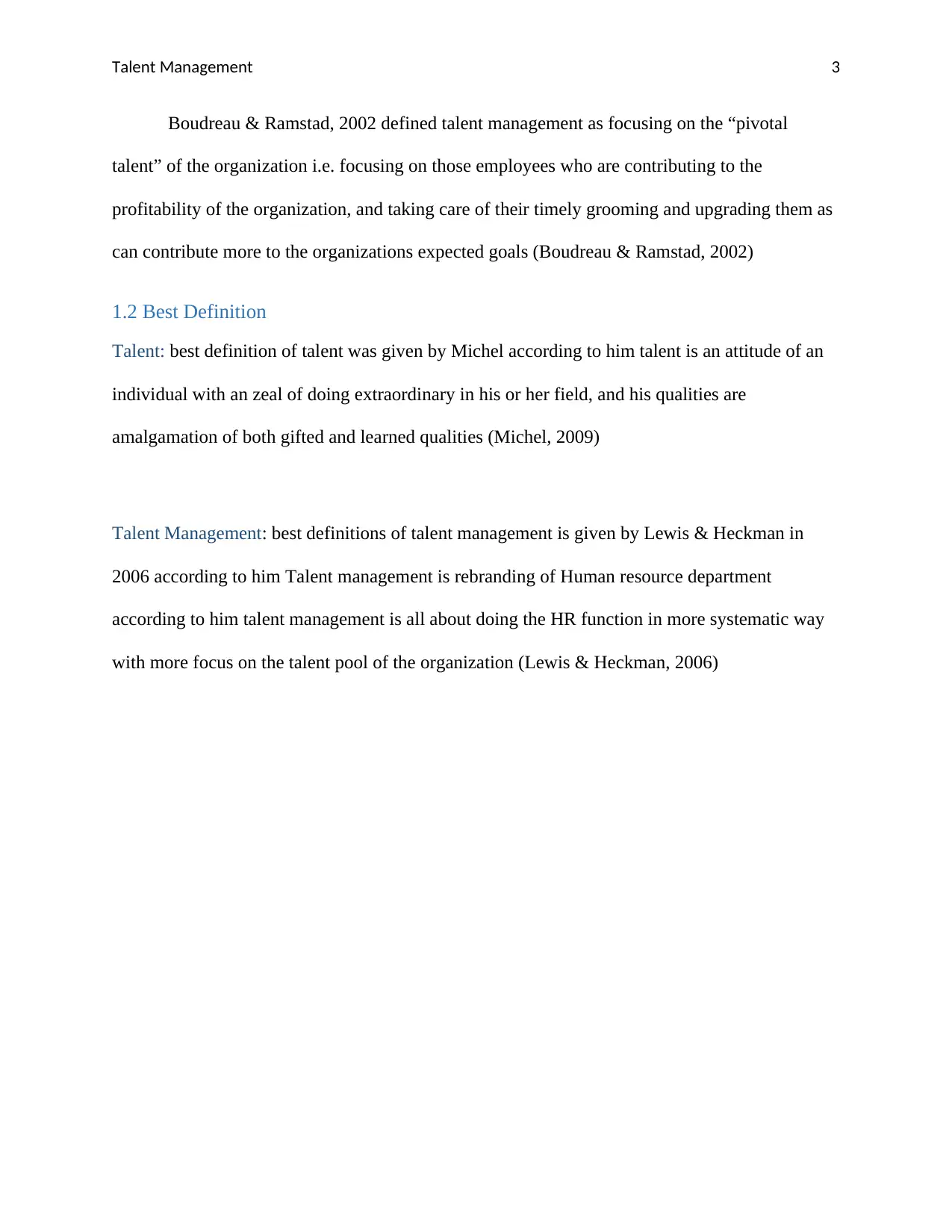
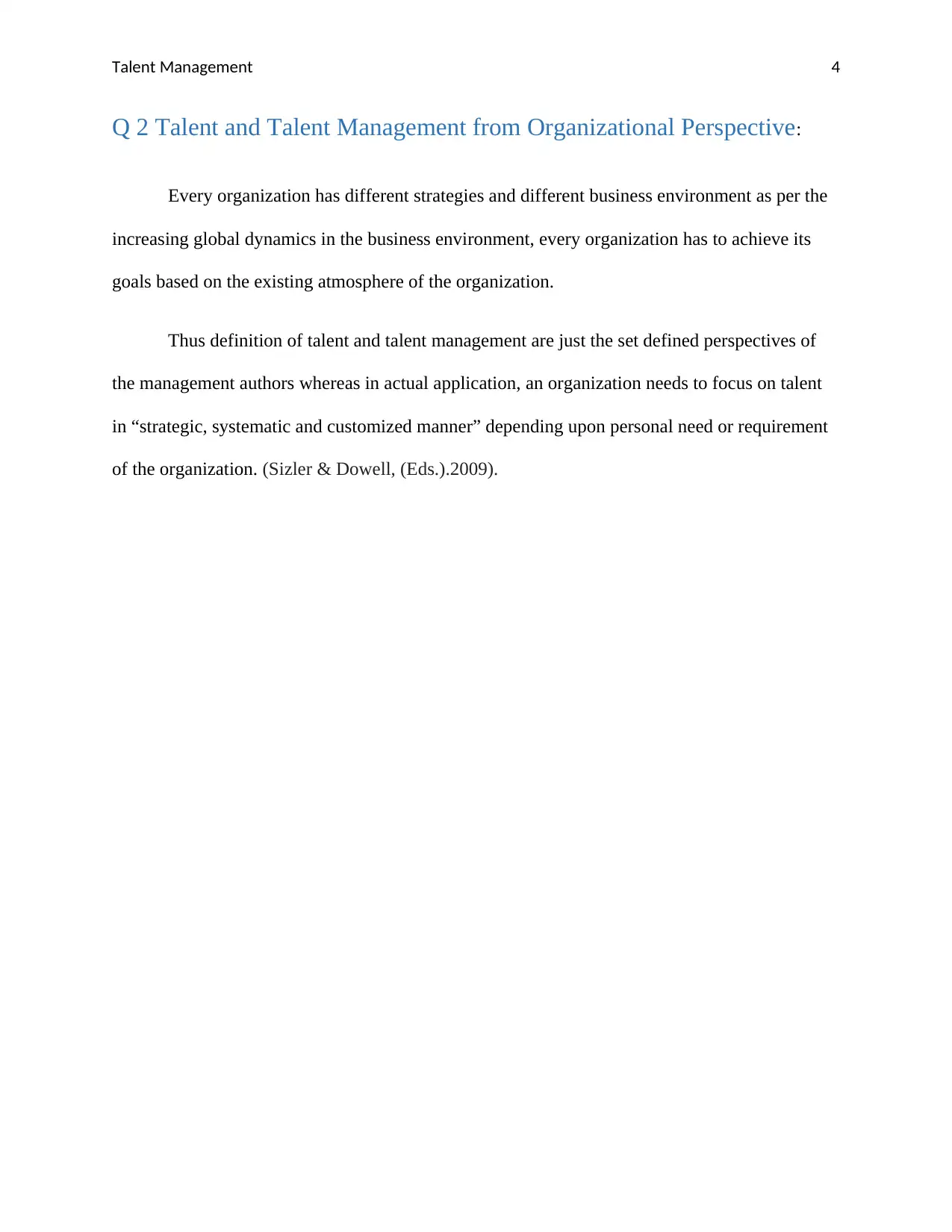
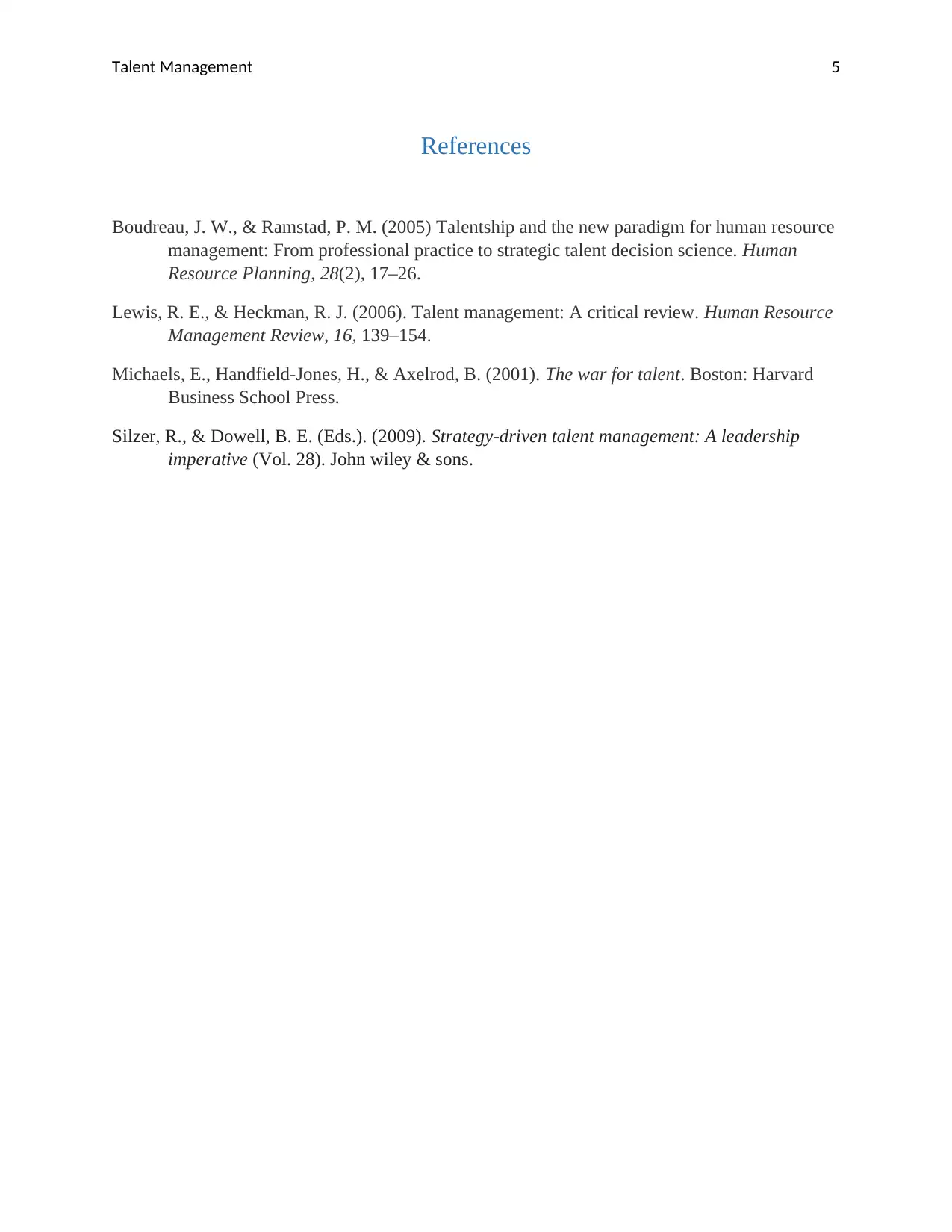

![[object Object]](/_next/static/media/star-bottom.7253800d.svg)